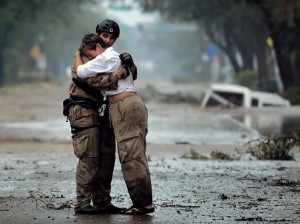
More evidence that low-calorie sweeteners are bad for your health
Studies show that artificial sweeteners can raise the risk of hypertension, metabolic syndrome, type 2 diabetes and heart disease, including stroke.

Natural Health News — Could first responders make use of acupuncture and integrative medicine in natural disasters and battle zones? According to a new review the answer is yes.
Delivering traditional emergency medical care at ground zero of natural disasters and military conflicts is challenging. In the recent past, according to the authors, numerous natural disasters and wars have resulted in casualties on site that have been treated successfully by trained personnel using holistic medical techniques, including acupuncture, hypnosis, yoga, biofeedback and other techniques.
First responders trained in simple integrative medicine approaches like these – adapted where necessary for the extreme circumstances that they face – can provide adjunctive treatment to help relieve patients’ pain and stress say the authors.
The article, in the peer-reviewed journal Medical Acupuncture, presents integrative health care approaches, suitable for use by emergency responders and rescuers, that do not require extensive equipment, facilities, or supplies.
It features examples of techniques that have been found to be useful during natural disasters and armed conflicts, such as the Fukushima Daiichi and Haiti earthquakes and the battlefields of Iraq and Afghanistan.
The authors say they are not representing the views of the United States Air Force Medical Corps, the Air Force at large, or the Department of Defense. Nevertheless, they conclude that the studies discussed in their review, and other studies and experiences, show that a number of integrative health care products and practices could provide valuable adjunctive approaches to the usual-care strategies used for natural disaster and combat zone relief.
“These approaches are usually inexpensive and nontoxic, are inherently low-risk, do not require complicated delivery methods, and can be pushed far forward in disaster relief effort even when other resources cannot be delivered. Such approaches may provide significant and rapid relief for victims of disasters and wars, as well as for their caregivers.
“These approaches should be investigated further and tested systematically in disaster and wartime environments.” they continue “In addition, members of communities, such as Galveston TX, that experienced devastation after Hurricane Ike may find the use of various alternative medicine techniques helpful for building community resilience to future natural disasters.”

Please subscribe me to your newsletter mailing list. I have read the
privacy statement